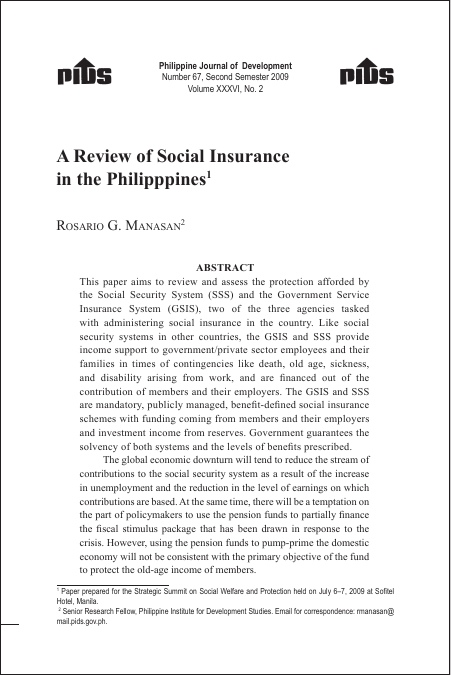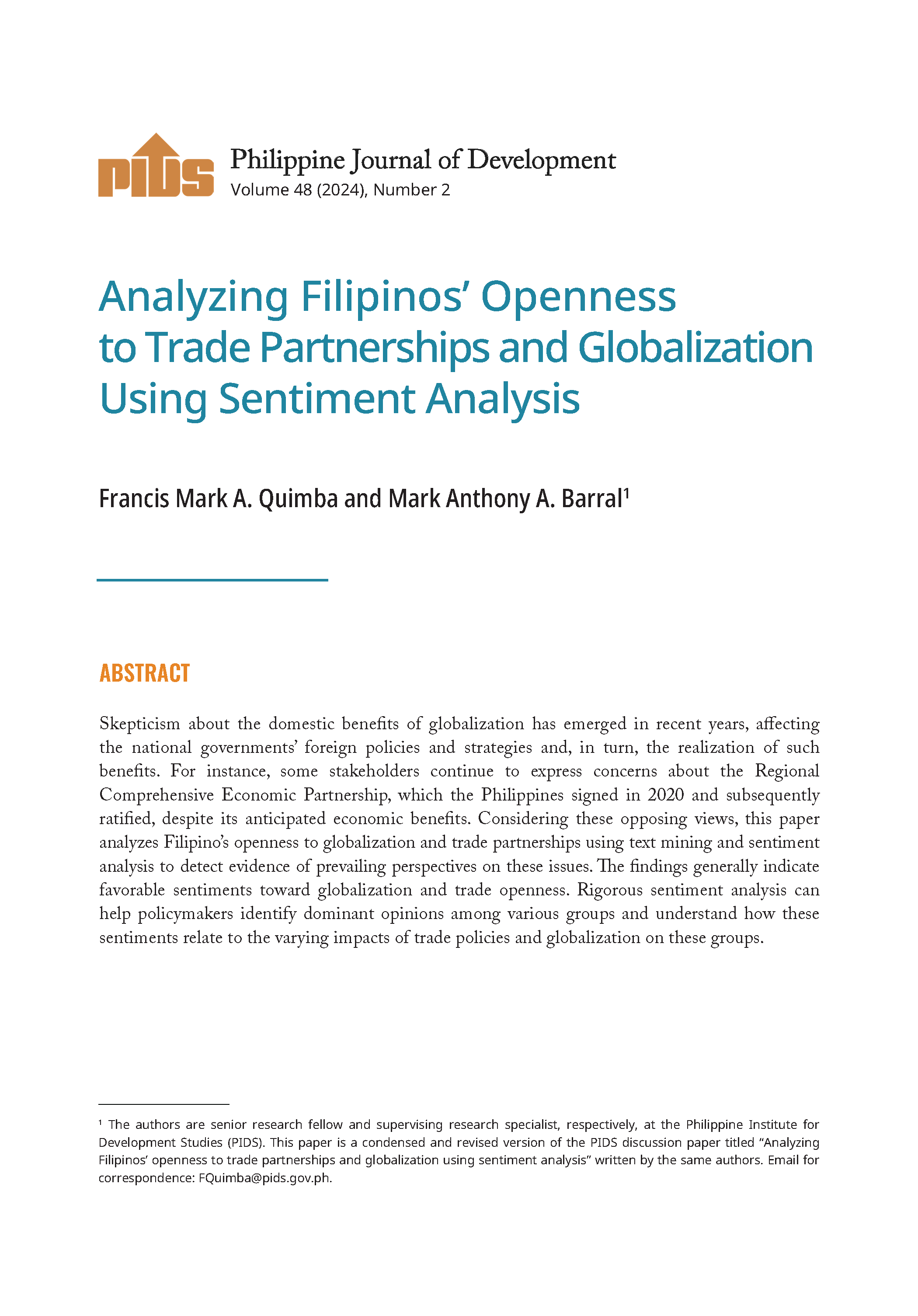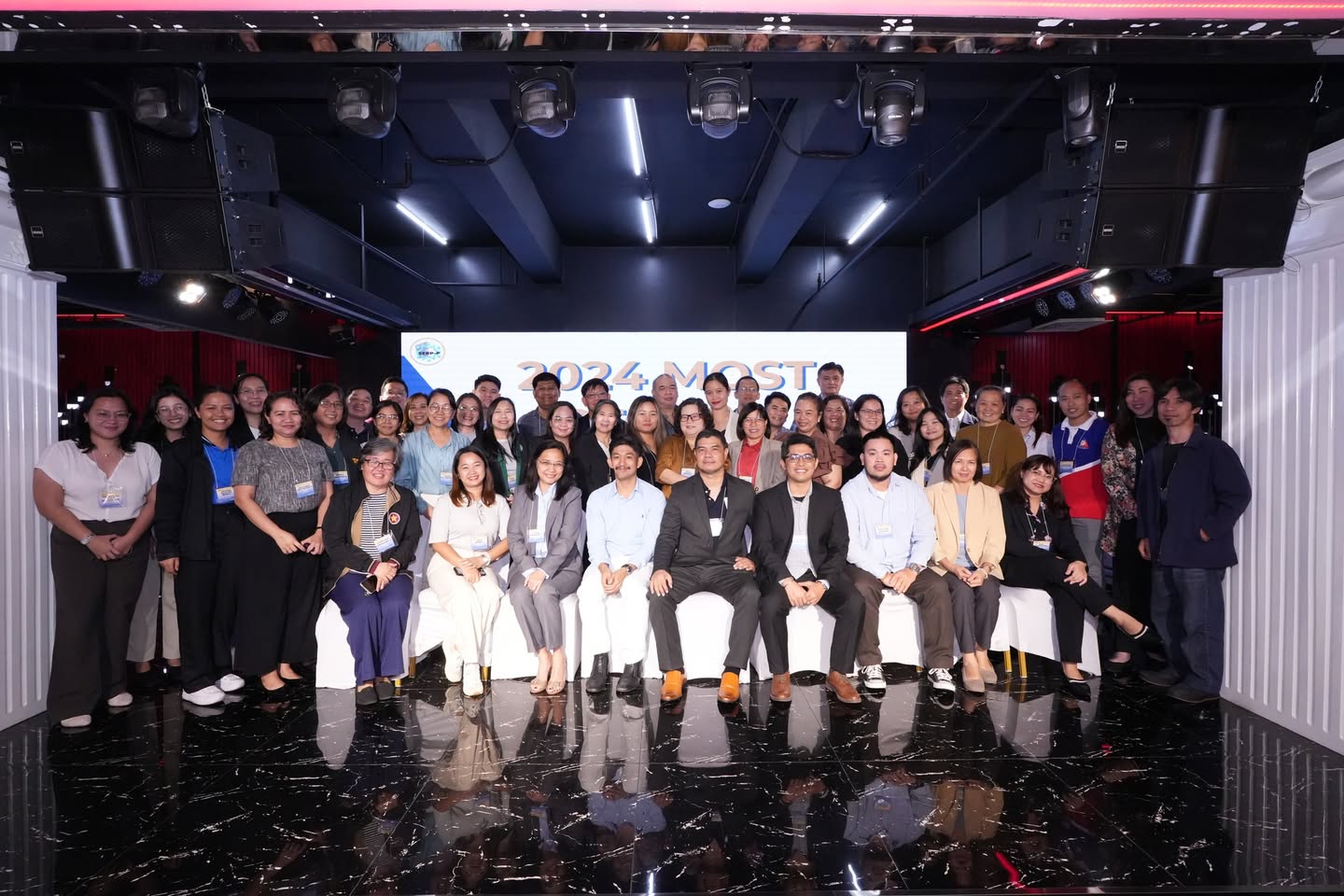This paper aims to review and assess the protection afforded by the Social Security System (SSS) and the Government Service Insurance System (GSIS), two of the three agencies tasked with administering social insurance in the country. Like social security systems in other countries, the GSIS and SSS provide income support to government/private sector employees and their families in times of contingencies like death, old age, sickness, and disability arising from work, and are financed out of the contribution of members and their employers. The GSIS and SSS are mandatory, publicly managed, benefit-defined social insurance schemes with funding coming from members and their employers and investment income from reserves. Government guarantees the solvency of both systems and the levels of benefits prescribed.The global economic downturn will tend to reduce the stream of contributions to the social security system as a result of the increase in unemployment and the reduction in the level of earnings on which contributions are based. At the same time, there will be a temptation on the part of policymakers to use the pension funds to partially finance the fiscal stimulus package that has been drawn in response to the crisis. However, using the pension funds to pump-prime the domestic economy will not be consistent with the primary objective of the fund to protect the old-age income of members.Even without the global financial crisis, reforms aimed at improving the financial viability of and corporate governance in both the GSIS and the SSS have already been started. Some gains have already been achieved in various areas of concern but sustained effort is still important. The needed reforms have already been articulated by various experts. Prospectively, there is a need to explore the feasibility of a noncontributory social pension for the aged poor given the low coverage of the informal sector in the SSS.













